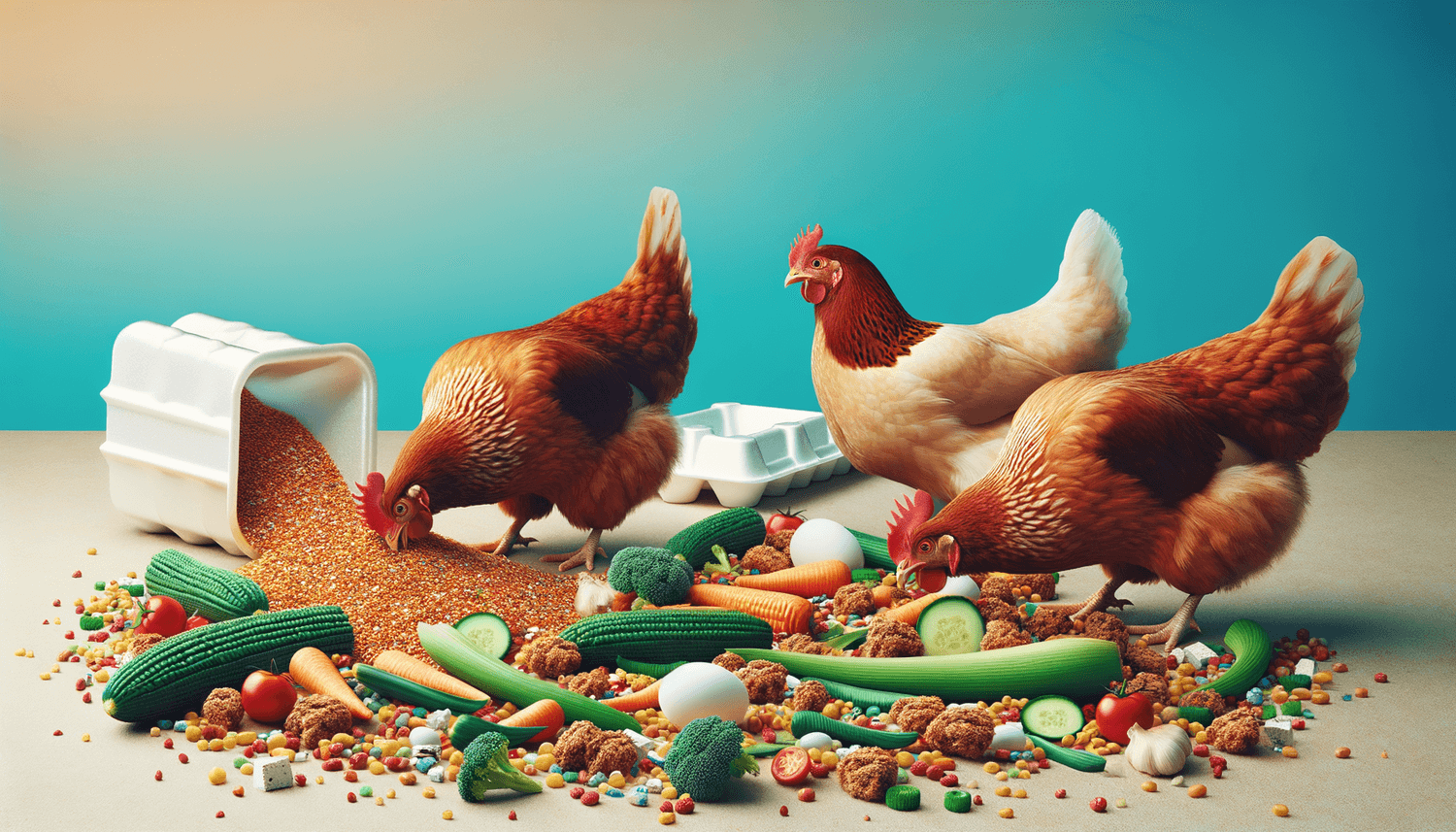Hey there, backyard chicken enthusiasts! 🐔 Are you ready to cluck into an egg-citing new topic? We’ve all been there – you turn around for just a second, and suddenly your feathery friends have pecked their way into something you never intended for them to eat. Today, we’re talking about all things Styrofoam — specifically, can chickens eat it? We’ll dive into whether these curious birds should be indulging in this lightweight material, the importance of a balanced diet, any benefits and/or risks, its nutritional value (if any), and how to serve up safe and delicious treats for your feathered family members. Get ready to scratch up some knowledge that’s sure to make your coop the talk of the pecking order!
Can chickens eat styrofoam?
No, chickens should not eat Styrofoam. It is not safe for their consumption. Styrofoam is a form of plastic, and consuming it can lead to health issues such as intestinal blockage or potential toxicity. It is vital to provide your chickens with a proper diet and monitor them to prevent them from ingesting harmful substances like Styrofoam.
A balanced diet for chickens
Just like humans, chickens need a balanced diet to maintain good health and live their best lives. Their nutritional requirements are unique, and it’s crucial that we, as responsible caretakers, ensure they receive the right nutrients in the right proportions. A big part of maintaining a balanced diet for our feathery friends is understanding the importance of chicken feed in their daily meals.
Chicken feed should form the backbone of your chickens’ diet, making up around 80-90% of their food intake. High-quality chicken feed is designed to meet all of their essential nutritional needs, providing them with the right balance of proteins, vitamins, and minerals necessary for optimal growth, egg production, and overall well-being. The remaining 10-20% of their diet can be treats like fruits and vegetables that provide them with variety, entertainment, and additional nutrients. Remember, moderation is key when it comes to treats, so ensure that they don’t overpower the essential foundation of chicken feed in their meals.
Nutritional value of styrofoam for chickens.
Feeding Styrofoam to chickens offers no nutritional value, as it is a form of plastic made from expanded polystyrene. It contains no vitamins, minerals, hydration benefits, or other components that are essential for the health and well-being of chickens. Styrofoam is indigestible and provides no sustenance, unlike wholesome treats and healthy chicken feed designed to meet their nutritional needs.
Considering that chickens should not eat Styrofoam, it is important to be vigilant about keeping it away from your birds. Chickens are often curious and may peck at Styrofoam out of curiosity, but ingesting it can lead to health issues such as gastrointestinal blockage or potential toxicity. As a caring chicken owner, it is crucial to prioritize the health of your chickens by providing them with safe, nutritious food choices, and preventing them from consuming harmful materials like Styrofoam.
Nutrition table of styrofoam for chickens.
| Information | Description |
|---|---|
| Nutritional Value | None |
| Suggested Serving Size | Not applicable, chickens should not eat Styrofoam |
| Safe Feeding Practices | Do not feed Styrofoam to chickens, keep it away from their reach |
| Preparation | Not required, refrain from giving Styrofoam to chickens |
| Potential Risks | Gastrointestinal blockage, potential toxicity |
| Hydration | Styrofoam does not provide any hydration benefits |
| Digestion | Styrofoam is indigestible and can cause health issues |
| Seasonal Availability | Not relevant, Styrofoam is not a food source for chickens |
| Other Benefits | No benefits, Styrofoam is harmful to chickens |
Safe treats and alternatives for chickens
Now that we’ve established that Styrofoam is not safe for your chickens, it’s time to look at some healthy and nutritious options for treats. A well-rounded chicken diet should consist mostly of high-quality chicken feed, but chickens also appreciate variety and occasional snacks. Providing them with safe and delicious treats helps promote their overall happiness and well-being.
Fruits, vegetables, and even some table scraps can make for excellent, chicken-approved treats. Make sure to always consult credible sources before introducing new foods into their diet, as some food might not be suitable for chickens.
Creating a secure and clean environment
Ensuring that your chickens have a safe and clean coop is essential for their health. Be mindful of potential hazards in and around their living space, including Styrofoam and other potentially dangerous materials. Regularly clean your coop, maintain secure fencing, and introduce new bedding to keep your chickens happy, healthy, and protected from potential risks.
Monitor your chickens’ activity and health
Chickens sometimes exhibit a natural curiosity that might lead them to peck at objects and materials, including Styrofoam. By closely monitoring their behavior and overall health, you can swiftly address any instances where a chicken may have ingested something harmful. Make sure to learn and recognize the signs of ill health in your chickens, such as changes in behavior or egg production, to act promptly if something isn’t right. If you suspect your chicken has consumed Styrofoam or anything else dangerous, consult your veterinarian for assistance.

















